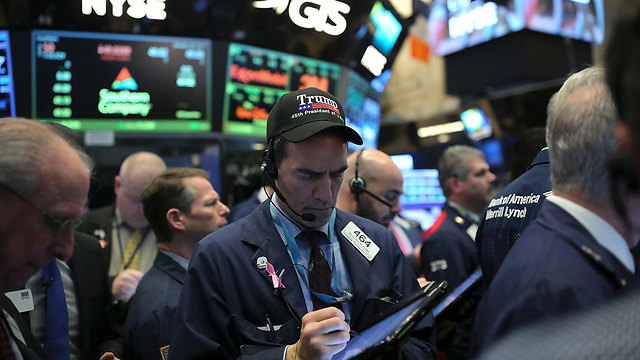
Insurance and retirement fund managers have seen their assets swell 50 percent in five years, reaching $441 billion in 2016, according to the Bank of Israel, after a series of changes that started in 2008 aimed largely at bolstering pensions.
With record low interest rates making bond investments less attractive and falling trading volumes on the Tel Aviv Stock Exchange, partly because successful Israeli companies are listing elsewhere, managers are looking for other investments.
"More money than ever is coming into the industry. Fund managers are sitting on mountains of cash that suddenly aren't producing yields, so there is a need to diversify," said Rami Dror, chief executive at Halman-Aldubi, an Israeli investment house.
The Tel Aviv Stock Exchange cannot absorb such large volumes of investment. Trading volumes in 2016 averaged 1.27 billion shekels ($340 million) a day, down from 1.45 billion in 2015 and 2 billion in 2010.
The number of companies listed on the bourse has dropped by 200 over the past decade to 451 while there are few public share offerings, and many choose to list elsewhere.
The move to foreign private equity is already underway and is in line with global trends as investors look for better returns in the low interest rate environment.
Praedicta, a data analysis firm, estimates Israeli institutional investors had $11 billion in private equity funds in 2016, a 162 percent increase from five years earlier. Two-thirds is invested in foreign funds with the rest invested locally.
Halman-Aldubi Global, the group's fund distribution unit, estimates that allocations for alternative investments such as private equity, hedge funds and real estate, will more than double in the next three years to reach $30 billion and could double again to $60 billion within five years.
Capital Windfall
Israel, like many other countries, introduced pension reforms to cope with an ageing population. In 2008 it raised the percentage of all salaries that must be set aside for retirement and severance, to 18.5 percent from 2.5 percent.It expanded the use of employee mid-term savings funds and began depositing 50 shekels ($13) each month for every Israeli child into his or hers own provident fund or bank.
This led to a capital windfall for institutional investors that has attracted the attention of foreign funds.
"Israel, while it starts from a fairly modest base, may expand at a much faster rate over the next few years, and that makes it more interesting to people like us," said Michael Granoff, CEO of New York-based private equity firm Pomona Capital.
Pomona manages about $9 billion and, for its ninth fund, is for the first time engaging Israeli institutional investors.
In five years the number of active private equity investors in Israel has jumped from nine to 28, according to research firm Preqin. Europe and North America are the preferred destinations for private equity investment abroad, it said.
"We changed our approach in the last few years and we try to invest most of our money outside of Israel," said Asaf Shoham, head of investments at Migdal, one of Israel's largest insurers.
He sees Migdal at least doubling the percentage of its portfolio dedicated to private equity, which means investing each year between $500 million to $1 billion.

















